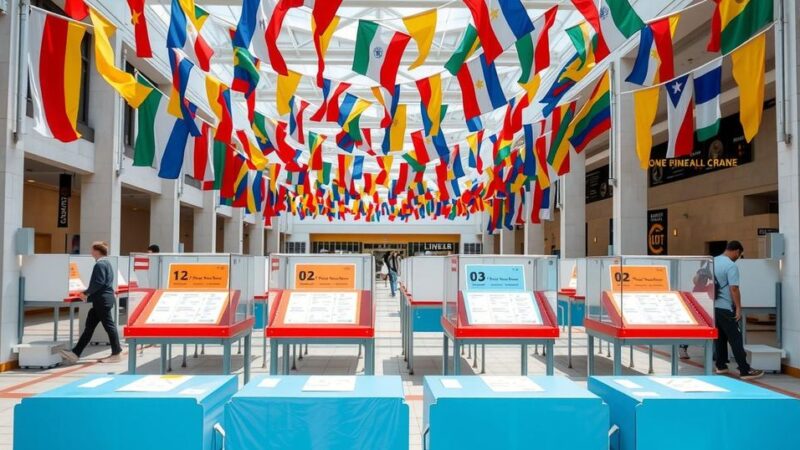Comfort Ero, president of the International Crisis Group, has stressed the importance of building consensus among political parties in Bangladesh as the interim government prepares for national elections. She warned that unresolved key issues could lead to disputed elections. The article also discusses the complexities of the Rohingya crisis and the need for strategic regional engagement amidst ongoing challenges.
The primary responsibility of the interim government is to foster consensus among political parties to ensure inclusivity during the electoral process, stated Comfort Ero, president of the International Crisis Group. She emphasized the importance of establishing a fair environment for elections, warning that unresolved key issues could lead to a disputed electoral outcome. Ero made these remarks during an interview with The Daily Star amid her visit to Bangladesh.
The International Crisis Group, a prominent global think tank based in Brussels, has shifted its focus to Bangladesh following the significant political changes triggered by the July uprising. In response, the interim government is undertaking extensive reforms in preparation for the upcoming national elections. The government, led by Muhammad Yunus, has initiated various reform commissions, including the National Consensus Commission, which he chairs.
While the Bangladesh Nationalist Party (BNP), the country’s largest political party, advocates for an election contingent upon minimal reforms, newly established parties like the National Citizen Party demand more substantial changes prior to the elections. Additionally, unresolved discussions surrounding the potential ban on the Awami League further complicate the political landscape. Ero stressed the necessity for all political factions to agree on foundational principles as articulated in the July charter and their respective manifestos to lend credence to the reform efforts.
According to Ero, while not all conflicts will be resolvable before the elections, it is crucial for parties to coalesce around the July Charter to guide future reform initiatives. She acknowledged the interim government’s focus on dialogue, inclusion, and transparency but expressed skepticism about resolving all pertinent issues in time.
On the subject of political reconciliation, Ero highlighted the significance of addressing the root causes of conflict rather than allowing grievances to persist unaddressed, which could lead to worse violence in the future. The entrenched political rivalry in Bangladesh necessitates outreach and compromise from all entities involved.
She pointed to lessons learned from last year’s violence, noting the importance of addressing fundamental issues to prevent further crises. Accountability for past human rights violations is essential but must be approached with impartiality and transparency to prevent perceptions of vengeance, which could escalate tensions.
The Rohingya crisis remains complicated by decreasing funding and ongoing military conflicts in Rakhine State. Ero noted that while there is no active conflict affecting Rohingya civilians directly, military blockades hinder the delivery of essential supplies and services such as electricity and internet access. Increasing attacks by armed Rohingya groups escalate tensions, adversely impacting relations between the Arakan Army (AA) and Bangladesh, as well as the Rohingya community.
Ero suggested that, considering evolving geopolitical realities and bordering security challenges, Bangladesh must reevaluate its engagement strategies with the AA. Such engagement is critical for national security and is essential to ensuring the safe repatriation of Rohingya refugees back to Rakhine.
In summary, the urgency of building consensus among political parties in Bangladesh is paramount for a successful electoral process. Ero’s insights highlight the necessity of addressing historical grievances and ensuring accountability for past injustices. The ongoing Rohingya crisis complicates the political and humanitarian landscape, requiring strategic reevaluation of regional engagement. Emphasizing dialogue, inclusivity, and transparency, the interim government has the potential to create a more stable political environment that can pave the way for meaningful reform and reconciliation.
Original Source: www.thedailystar.net






